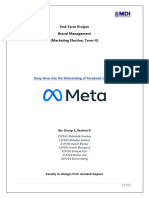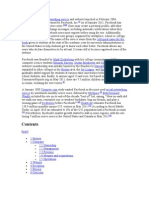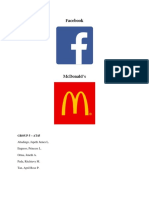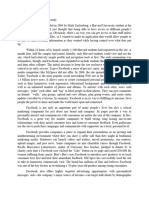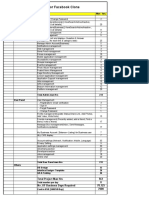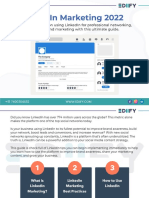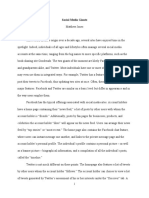0% found this document useful (0 votes)
12 views11 pagesProject
The document discusses the significance of Facebook Analytics in enhancing targeted marketing for businesses, emphasizing its ability to provide insights into audience behavior and optimize marketing campaigns. It outlines the historical development of Facebook and its evolution into a major advertising platform, as well as the challenges businesses face in effectively utilizing Facebook Analytics. The study aims to explore the features and benefits of Facebook Analytics while addressing the limited understanding and implementation issues that hinder businesses from maximizing their marketing potential.
Uploaded by
jelissngoum63Copyright
© © All Rights Reserved
We take content rights seriously. If you suspect this is your content, claim it here.
Available Formats
Download as DOCX, PDF, TXT or read online on Scribd
0% found this document useful (0 votes)
12 views11 pagesProject
The document discusses the significance of Facebook Analytics in enhancing targeted marketing for businesses, emphasizing its ability to provide insights into audience behavior and optimize marketing campaigns. It outlines the historical development of Facebook and its evolution into a major advertising platform, as well as the challenges businesses face in effectively utilizing Facebook Analytics. The study aims to explore the features and benefits of Facebook Analytics while addressing the limited understanding and implementation issues that hinder businesses from maximizing their marketing potential.
Uploaded by
jelissngoum63Copyright
© © All Rights Reserved
We take content rights seriously. If you suspect this is your content, claim it here.
Available Formats
Download as DOCX, PDF, TXT or read online on Scribd
/ 11



